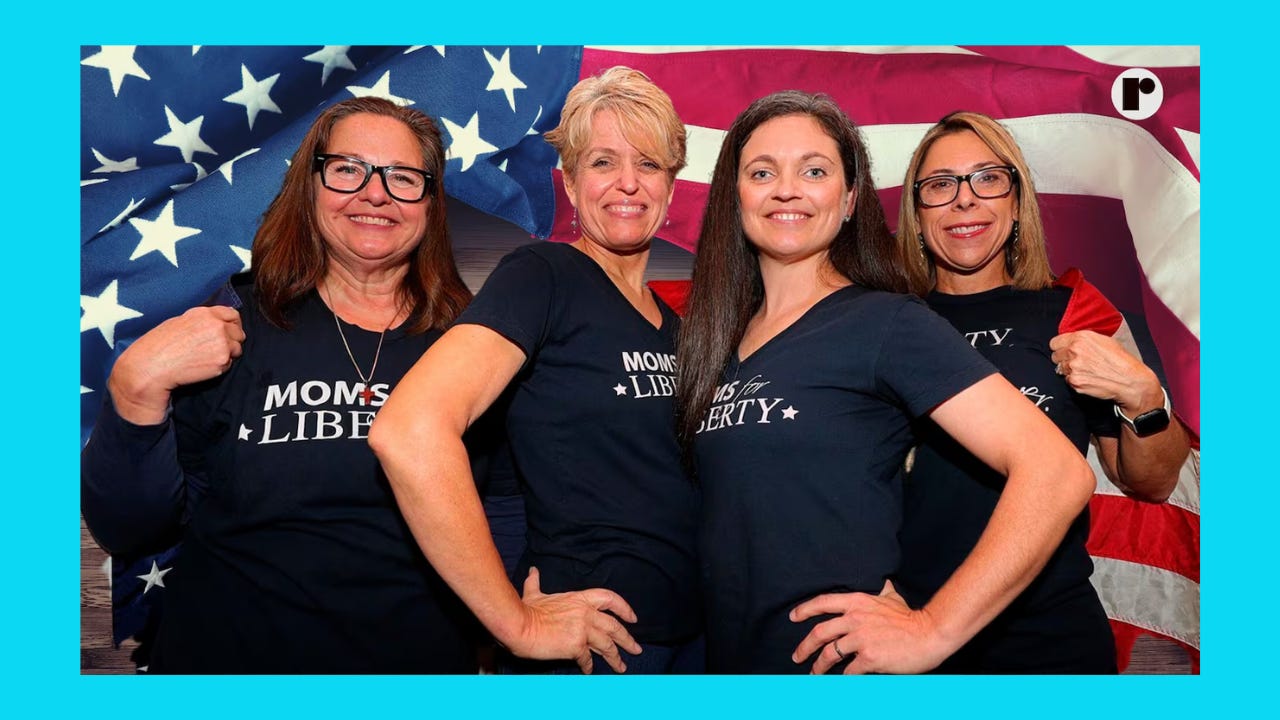This Isn’t Just a School Board Meeting
How right-wing media has been quietly winning the local narrative war
My name is Megan Burns. I’m a City Councilmember for Northglenn, Colorado. I think everyone should care more about local government, and that’s why I joined UNASB. So let me start with a story you’ve all heard before—and one we talk about a lot here at UNASB.
An outraged mom stands up at a school board meeting, maybe wearing a shirt that says ‘Moms for Liberty,’ holding a printout of a book she claims is inappropriate not just for her kids, but for every kid in this school and district. A group of women cheers her on from the crowd while one of them posts to their local chapter’s Facebook, which has over 1000 members. Then, the newly elected board member who campaigned on something they call “parental rights” promises to take action. In the morning, the local news channel, owned by Sinclair Broadcast Group, shares the interaction, and the next thing you know, Fox News turns it into a five-minute segment for the evening news. And of course, the book is pulled from the library before the next school board meeting.
And then, just like that, you start seeing more and more of these stories, and suddenly, it’s not just one school district in one county, it’s a movement.
This is how the right has been playing the game for decades. And they’ve been winning.
While many progressives are still figuring out how to go viral with an Instagram infographic and trying to decide if they should join TikTok, the right-wing media machine has been building a well-oiled media and communications pipeline for years, with a significant uptick in their anti-education tactics since 2020. They have built a propaganda machine that feeds people the messages they want to hear.
First, they came for the radio waves and have dominated talk FM stations for years. Then, it was local newspapers and local news channels, and now it’s Turning Point USA influencers and the META algorithm. So, no matter where you go, you will see and hear the same talking points over and over again.
They’ve got the infrastructure. They’ve got the clear messaging. And most crucially, they’ve got the feedback loop.
It works like this:
Step 1: Local outrage is manufactured, often seeded by national playbooks from groups like Moms for Liberty or the Heritage Foundation.
Step 2: The Right-wing media army amplifies the narrative. And it’s not just Fox – it ends up on thousands of Facebook pages, YouTube channels, tweets, TikToks, and as we here at UNASB know very well, podcasts
Step 3: Local electeds start to feel the pressure: people start leaving comments on social media posts, showing up to meetings and leaving public comments, and sending so many emails and voicemails that their representatives start to feel overwhelmed and prompted to action.
Finally, in Step 4, policy changes follow, even if the original issue was exaggerated or invented. Local government officials, who are more often than not volunteers, don’t have the teams or means to always help them make the right decisions.
This has been the right-wing playbook for a long time, but with the rise of technology, the speed and scale at which these messages can reach the masses are growing exponentially. When Susie from down the street shares a clip of a school board confrontation, it’s not “media;” it’s well, Susie and we trust Susie, right? When the guy who’s been the Mayor and a pillar in the community for over a decade starts talking about how they are teaching “gender ideology in schools,” it’s not propaganda – it’s a community concern. And when the President of your PTA posts a TikTok saying, “They’re coming for your kids,” it doesn’t need to be true. It just needs to feel true.
We, as the left, as Democrats, have lost connection with our communities. We forgot that City Council Members have more impact on people’s everyday lives than Nancy Pelosi or AOC. We need to get back to real storytelling, not chasing trends and making bad memes. We know that we stand for all Americans, not just the ones typing the loudest in the comment section, and we need to make that clearer.
But to tell our stories, policies, and beliefs effectively, we have to start meeting people where they are, and that means supporting local influencers, building up our own creator class in every state, and investing in communicators who know how to make a town hall clip hit like a trending reel. It means participating in clubs like this one, where we look at what the right is doing, analyze how they communicate – the good, the bad, and the ugly – and learn how we can do better and have authentic conversations with people in our own lives about things that matter to all of us.
And it means acknowledging that school board races, city councils, county commissioners, and clerks are no longer “low-stakes.” They’re where the cultural battles are being fought — and won — long before anyone votes for president.
So the next time you hear about a library controversy, curriculum ban, or recall campaign in a state you don’t live in, in a town you’ve never heard of, don’t scroll past it – lock in and take note.
Because what a lot of people don’t know is that many of our big national issues started out as local grassroots movements. So, what may start out small won’t stay that way for long.





Absolutely true and love the breakdown of this.